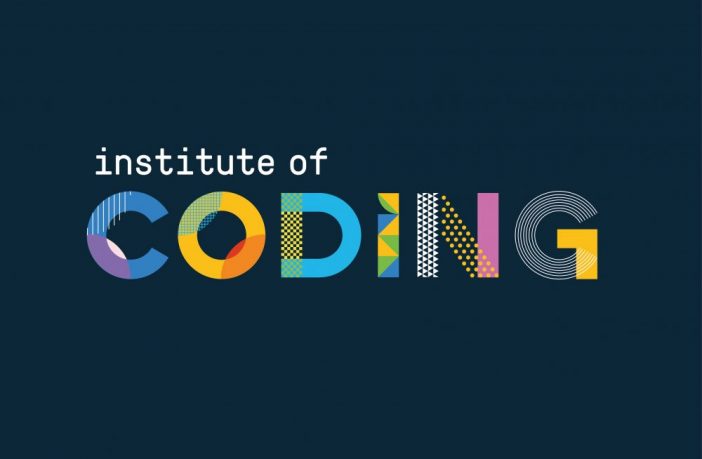- More than 500,000 computer scientists are needed by 2022
- The £40M Institute of Coding aims to give the UK an edge in the global digital economy
- It will deliver industry-focused, innovative Higher Education across the UK
The Open University (OU) has been announced as a major partner in the UK’s new £40 million Institute of Coding, which aims to train the next generation of digital specialists. The Prime Minister outlined the plans in a speech at the World Economic Forum in Davos.
OU takes lead on key area of Institute of Coding
The OU will lead on one of the key strands of the Institute’s work – boosting graduate employability, and the teaching of computer science, cyber security and data science in universities. It will use more than 50 years’ experience in delivering innovation in higher education and driving social mobility to help devise ways of drawing people of all backgrounds into studying IT and computing.
FutureLearn, the OU’s wholly-owned social learning platform, will host a bespoke hub that supports the Institute and makes available online courses from industry and academic partners.
OU role will encourage more people into computer science

Professor John Domingue is the OU project lead for the Institute of Coding
Project lead at the OU, Professor John Domingue, Director of the Knowledge Media Institute, said:
“We need to add an extra letter to the three Rs – C for Coding. Coding is used in all sorts of sectors – from health and retail, to the production of cars (some modern cars have more than 100 million lines of computer code) – and learning this skill is as important at university level as it is in schools.
“The demand is huge, and increasing, for people skilled in key computer science areas. The UK needs coders for existing industries but also for emerging sectors such as Artificial Intelligence.
“The OU will be helping universities to develop flexible ways for students to learn, enhancing diversity at scale so that far more people can study computer science in a way which suits them. We will be producing new courses in key areas such as Data Science and Cyber Security, and sharing our expertise in new learning technologies such as using blockchain (which underpins Bitcoin) and learning analytics.”
Bringing together employers, educators and technologists
The Institute of Coding is a collaboration between the UK Government, more than 60 universities, big players in the tech industry, SMEs, industry groups, experts in non-traditional learning and professional bodies. Led by the University of Bath, the world-leading consortium aims to strengthen the UK’s position globally in computing and IT, address the UK digital skills gap and create opportunities for more computer science graduates. Funding is comprised of £20 million from the Higher Education Funding Council for England (HEFCE) and a further £20 million in matched funding from industry.

Industry-accredited courses will help students develop the skills needed for success in the digital economy
Its work will cover five broad areas – University Learners (led by the OU), the Digital Workforce, Digitalising the Professions, Widening Participation, and Knowledge Sharing and Sustainability.
For university students, the Institute will deliver a range of industry-accredited courses that include top quality computer science teaching alongside the business skills, interpersonal skills and real-world experience required for success in the digital economy. Learners in industry will benefit from courses designed to ensure that their skills are up-to-date. The Institute will also work with outreach and community groups, schools and FE colleges to encourage a larger number of currently under-represented groups into digital education.
Removing barriers to computer science education and careers
The OU will lead the first theme on University Learning, to influence computer science teaching in universities nationally and remove barriers for potential students. One of the elements is to reach a broad spread of learners – including those under-represented in the sector such as women and those from BAME backgrounds – and encourage more people to take up careers in computer science.
The OU has expertise in finding innovative solutions to educational challenges as well as a social mission to extend the benefits to groups who have missed out on formal education. It will also use its centres of excellence in cyber security and data science to develop new courses in these fields.
The Open University Vice-Chancellor, Peter Horrocks, said:
The Open University is uniquely placed to help nurture new talent for the rapidly expanding tech industry. As a leader in world-class flexible higher education, we will be helping to shape digital learning both in universities and in the workplace to ensure that anyone, from any background, can learn new skills and find a pathway into a computing career. The Institute is going to be transformative for the digital economy and it’s an exciting prospect to be involved at the heart of this new initiative.
Online courses from FutureLearn will support Institute of Coding
FutureLearn will provide a hub for a broad range of online digital skills courses designed and delivered through close collaboration between universities and employers. The hub will provide an excellent and inspiring social learning experience that creates new opportunities for learners whether they are new to study, professionals developing their skills, or people returning to work.
Simon Nelson, Chief Executive at FutureLearn, commented:
“We’re excited to play a critical role in delivering the new Institute of Coding alongside our consortium partners.
Our aims align very well with the IoC and we expect to be able to add real value to the delivery of the IoC’s aims as we work closely with industry, and academic partners, to develop a broad and coherent portfolio of online courses that support learner progression and deliver meaningful accreditation.
Find out more
Learn more about the OU’s research and teaching in Cyber Security
Take a look at the Knowledge Media Institute’s website
Study computing with the OU
OpenLearn has free resources, articles and interactives on computing
Read about one of our inspiring case studies who got his dream job in IT thanks to the OU



